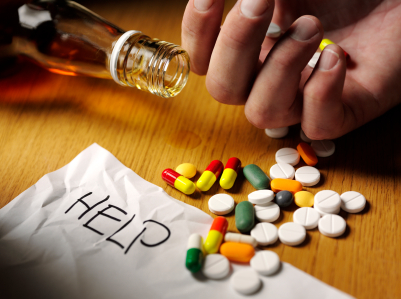Long term treatment options

Long term treatment options available will only be helpful if you they are applied in your situation
Long term treatment options: Residential rehabilitation centers
One of the ways of addressing the challenges of drug addiction treatment is by taking the option of long term treatment options that provides 24 hours care daily to patients. And speaking to doctor Dalal Akoury MD President and founder of AWAREmed Health and Wellness Resource Center, there is no doubt that addiction is a serious chronic health condition which cannot be wished away just by discontinuing the use of illicit drugs and alcohol. Addressing this problem must be done in a wide spectrum.
Long term residential treatment will offer more focused and evidence based professional care and treatment to the suffering victims within a reasonable time that is not limiting as in the outpatient treatment approach. Normally under the long term residential treatment programs, treatment often are detailed and take up to 120 days or more. This time allows for effective assistance and treatment of all the chronic conditions attached by providing intensive and structured treatment tailored at helping the patients to sustain abstinence and reclaim their normal life at the completion of the rehabilitation duration.
Long term residential treatment option: The therapeutic community (TC)
Besides the aforementioned, doctor Akoury is reiterating that it is important to note that his is generally done in non-hospital settings. When considering for long term residential treatment option for your condition, you must shop out for the best. And just to give you a hint, the best-known residential treatment model is the therapeutic community (TC) with planned lengths of stay of between 6 and 12 months. This will primarily address the “re-socialization” of the individual and uses the program’s entire community including other residents, staff, and the social context as active components of treatment.
Remember that in most cases alcohol and drug addiction is often viewed broadly in the context of an individual’s social and psychological deficits. Therefore, having appreciated that, the treatment will focus on developing personal accountability and responsibility as well as socially productive lives. Under this concept, treatment is highly structured and can be confrontational at times, with activities designed to help residents examine damaging beliefs, self-concepts, and destructive patterns of behavior and adopt new, more harmonious and constructive ways to interact with others.
Finally, during the long term residential treatment, patients are treated as patients and not prisoners. Many people often look at rehabilitation facilities as prisons for drug addicts. This is very wrong and stigmatizing and must be discouraged by all means. The intention is good and healthy. Therefore if you or anyone you know is struggling with drug addiction, there is hope with the experts at AWAREmed Health and Wellness Resource Center and doctor Dalal Akoury will be waiting to receive you just on phone call.
Long term residential treatment option: Addressing the challenges of drug addiction treatment
http://regenerativepotential.com/wp-admin




 Addiction is a subject that up to now is still poorly understood. And researchers have different opinion to what causes addiction. To understand what a causes addiction and much more about addiction the researchers have developed two models. The first model of addiction is known as the
Addiction is a subject that up to now is still poorly understood. And researchers have different opinion to what causes addiction. To understand what a causes addiction and much more about addiction the researchers have developed two models. The first model of addiction is known as the  Psychologists opine that if all addicts expressed the cause of their rage directly then there would be no addiction. In most cases addicts will not face their problems head on but will do something to substitute for the head on interaction with their problems. An example here is this. Suppose a man comes back home and his wife begin quarreling him over a past mistake, he ought to sit down and talk about the issue but in case of an addict he may respond by going out for a drink to ease himself. In this place the right act that is to face his wife and talk to her is replaced by an addictive act which is going out for a bottle of alcohol to get drunk and make him feel much more in control of his situation. If he continues to solve his problems through drinking the behavior might become too compulsive to him such that he will never ever solve even a single problem without the help of alcohol and so he becomes dependent on alcohol.
Psychologists opine that if all addicts expressed the cause of their rage directly then there would be no addiction. In most cases addicts will not face their problems head on but will do something to substitute for the head on interaction with their problems. An example here is this. Suppose a man comes back home and his wife begin quarreling him over a past mistake, he ought to sit down and talk about the issue but in case of an addict he may respond by going out for a drink to ease himself. In this place the right act that is to face his wife and talk to her is replaced by an addictive act which is going out for a bottle of alcohol to get drunk and make him feel much more in control of his situation. If he continues to solve his problems through drinking the behavior might become too compulsive to him such that he will never ever solve even a single problem without the help of alcohol and so he becomes dependent on alcohol.
 Motivational Interview and Addiction Treatmant
Motivational Interview and Addiction Treatmant


